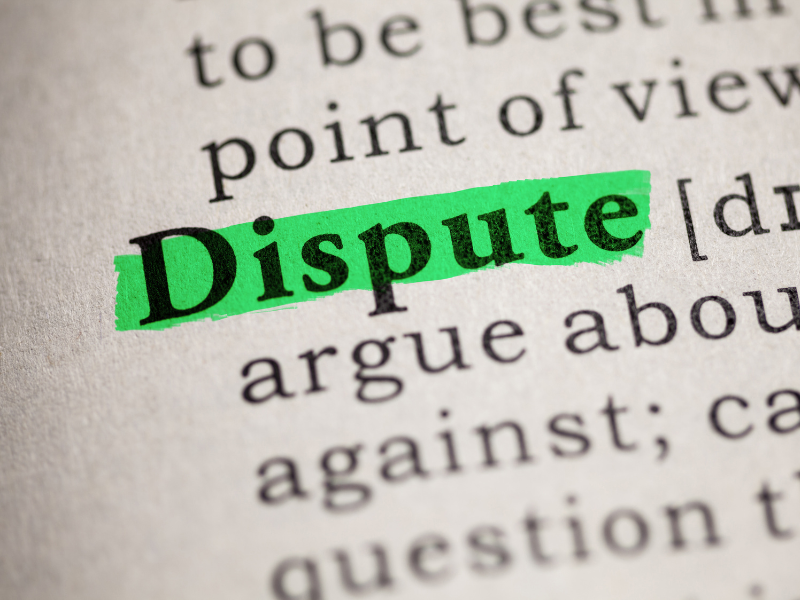Credit scores have a huge impact on your personal finances and investments. Lenders like credit card companies and auto dealers will check your credit score when considering loan approval and interest rates. Even your landlord and insurance company may review your credit score to determine your capacity to pay.
But what happens when your credit score takes a hit due to a breach of your medical privacy under the Health Insurance Portability and Accountability Act (HIPAA)?
This guide helps you understand HIPAA violation credit disputes and the steps you can take to initiate one.
Table of Contents

The Connection Between Credit Dispute and HIPAA Violation
At first glance, medical privacy and credit reporting may seem unrelated. After all, HIPAA is primarily concerned with safeguarding your medical information from unwanted access. However, delve a bit deeper, and you’ll find an intersection between HIPAA and the Fair Credit Reporting Act (FCRA) – the law that governs credit reporting in the United States. This juncture is where the trouble can begin.
Unauthorized disclosure of your health information, a clear HIPAA violation, can potentially have ripple effects on your credit score. It’s a scenario that may sound complex, but understanding the implications is essential for safeguarding your financial health.
The HIPAA Privacy Rule allows disclosures to consumer reporting agencies. However, these disclosures are limited to the following protected health information (PHI):
- name and address
- birthday
- social security number
- payment history
- account number
- name and address of the health care provider or health plan making the report
Remember, the Privacy Rule permits uses and disclosures by covered entities or their business associates in accordance with the FCRA or another law. However, anything more than what is stipulated by law can become a case of a HIPAA violation impacting credit.

How HIPAA Violations Affect Your Credit
Imagine this: your medical history, previously kept confidential, is exposed due to a HIPAA violation. If this information falls into the wrong hands, it could lead to identity theft and financial fraud. Suddenly, the privacy breach takes on a new dimension, impacting not only your personal information but also your credit score.
Inaccuracies resulting from such violations can find their way onto your credit reports, painting a less-than-favorable picture of your financial responsibility. The result? A compromised credit score with lasting consequences on your financial well-being.
Initiating a HIPAA Credit Dispute: Steps to Take
If you suspect a HIPAA violation has adversely affected your credit, take immediate action. Follow these steps to initiate a credit dispute and rectify the situation:
Review credit reports
Get your credit report from all three major credit reporting companies – Equifax, Experian, and TransUnion. Federal law allows you to access these reports for free once a year through AnnualCreditReport.com.
Check for inaccuracies
Scrutinize your credit reports for any erroneous medical debt-related information that could be a result of a HIPAA violation.
Gather documentation
Collect evidence of the HIPAA violation and its impact on your credit. This could include any correspondence, bills, or records related to the breach.
Draft a dispute letter
Compose a HIPAA credit dispute letter addressing the credit reporting agencies. Explain the situation, provide evidence of the violation, and request a thorough investigation. You can check the instructions on how to draft this letter and download a template from the Consumer Financial Protection Bureau.
Send the dispute letter
Send the dispute letter to the relevant credit reporting agencies and any involved healthcare providers. Be sure to use certified mail for proof of delivery.
Report to the FTC in cases of identity theft
If you suspect identity theft, take additional steps and report to the Federal Trade Commission.

Working With Credit Reporting Agencies
Once you’ve initiated a dispute, credit reporting agencies swing into action. Here’s what you need to know about how they handle HIPAA violation-related disputes:
- Verification process: Agencies verify the information by contacting the healthcare providers involved in the dispute.
- Timeframe for resolution: Investigations take around 30 days or less. Patiently wait for the resolution and follow up if needed.
- Receiving investigation results: You will receive the results in writing once the investigation is complete. If inaccuracies are confirmed, corrections will be made to your credit reports.
Take Charge of Your Credit Health
A HIPAA violation impacting credit is both troublesome and problematic. But taking proactive steps can help reclaim your financial health. You can file a credit dispute and seek help from concerned agencies. The key lies in understanding your rights and taking decisive and timely action.
Remember, your credit health is within your grasp – even in the face of HIPAA violations.







